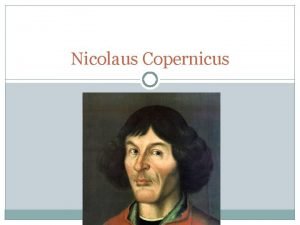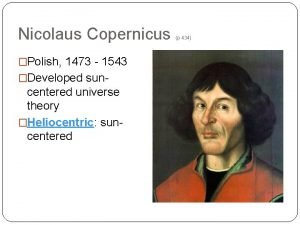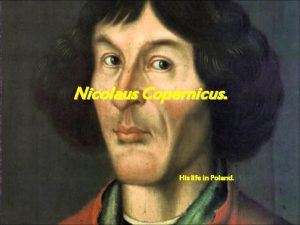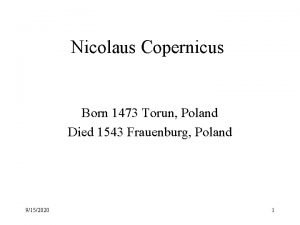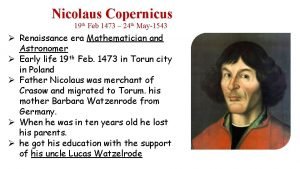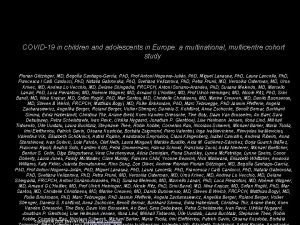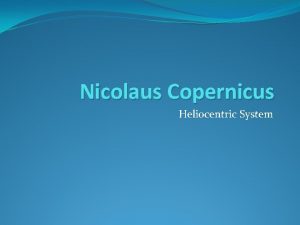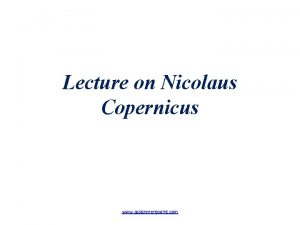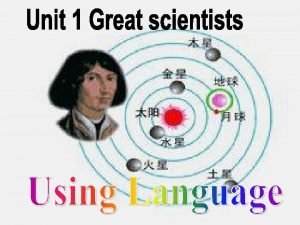Thinkers of the Scientific Revolution Nicolaus Copernicus aka






- Slides: 6

Thinkers of the Scientific Revolution

Nicolaus Copernicus (aka Nicholas Copernicus) • 1473 - 1543 • Polish priest and astronomer who shook the foundations of Europeans beliefs • Challenged Ptolemy’s system • Based on mathematics he developed a heliocentric theory that placed the earth as the 3 rd planet rotating around the sun • Major work: The Revolution of Heavenly Bodies

Tycho Brahe • 1546 - 1601 • Danish astronomer • Meticulously recorded star data for 20 years • Chartered the irregular path of a comet which disproved Ptolemaic theory • Didn’t fully accept heliocentric theory • Massive collection of data helped future scientists

Johann Kepler • 1571 - 1630 • Mathematician who developed the first theories of motion • Was Brahe’s assistant and used Braher’s data to come up with theory that planets moved in ellipses • His first Law of Motion stated that the planets moved in elliptical orbits • His second Law of Motion stated that the planets sweep through an equal are of space in an equal amount time

Galileo Galilei (1564 - 1642) • First to use a telescope to look at the heavens, with it he saw Jupiter’s moons, and the craters on the moon • Works: • Starry Messenger= got him in trouble with the Spanish Inquisition, which had warned him not to openly support Copernicus • Dialogue on the Two Great World Systems= stated this was a work of fiction to placate the Church. The Church didn’t fall for it and forced him to recant. He spent the rest of his life in house arrest • Theory of Inertia= stated that things in motion remained in motion unless acted upon by another force– implied God is not necessary to move planets • Considered the first modern scientist • Developed the Scientific Method of experimentation • Was one of the mechanists (how, NOT why)

Isaac Newton (1642 - 1727) • Published The Principia= described three laws of motion 1. 2. 3. In the absence of force, motion continues in a straight line The rate of change of the motion is determined by by the forces acting on it Action and reaction between two bodies are equal and opposite • Law of universal gravitation= applied the concept of gravity to both heaven and earth • Supported observation and experimentation • Helped further develop the Scientific Method
